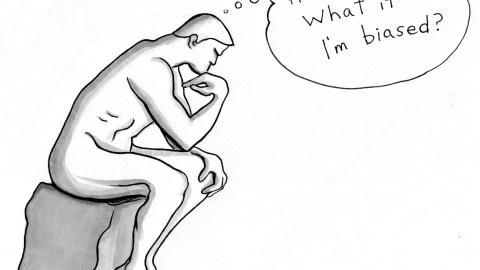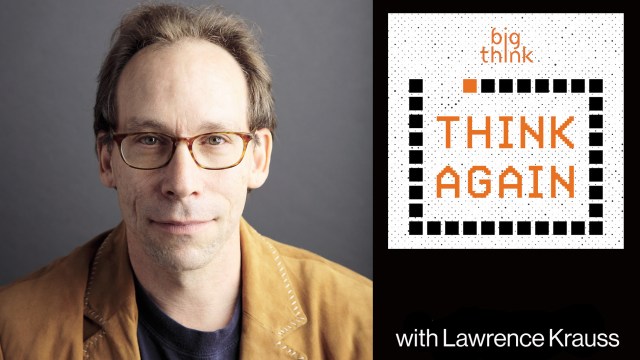Confirmation Bias Isn’t a Bug, It’s Operator Error

1. Science has good news on minds, for a change. A key cognitive bias isn’t a bug, it’s just operator error (and easily correctable by using reason as nature intended).
2. In The Enigma of Reason, Hugo Mercier and Dan Sperber (M&S), articulate an “argumentative theory of reasoning.” Their “interactionist” views contrast sharply from the prevailing individualist “intellectualism.”
3. M&S call confirmation bias—discounting facts that contradict your beliefs—a “well-established but ill-explained” pattern which actually has evolutionary advantages.
4. An analogy between reason and sight can enlighten here. Eyesight isn’t a direct window onto reality. It detects limited wavelengths, needs many interpretative steps between received light and sight, and suffers optical illusions (that are tellingly not survival-threatening).
5. Likewise, reason isn’t an all-seeing, impartial, objective logic machine (roughly what intellectualist Enlightenment reason-lovers like Descartes and Kant believed).
6. Our brains are built and “biased” to enable evolutionarily useful behaviors. And solving abstract logic problems is an evolutionary novelty (e.g., only possible after the invention of the technology of writing). So reason evolved mainly “to resolve the problems posed by living in collaborative groups.”
7. M&S argue that reason’s two main functions, self-justification and persuasion, are tools “for social action.”
8. But, they emphasize, there’s no evolutionary sense in being predisposed to pigheadedly sticking to your beliefs. You’re often better off changing your mind and using better ideas from trusted others (cognitive division of labor). So we evolved to be persuadable (by sufficiently good, trustworthy, reasons), as M&S describe in chapter 15 “The Bright Side of Reason.”
9. M&S’s argumentative theory is often misrepresented as reason being like your inner lawyer’s win-at-all-costs “weapon.” But good lawyers know when to concede to stronger arguments. They negotiate in their clients’ better interests.
10. And M&S say we have two inner lawyers, one very vigilant about reasons given by others, another lazy one arguing our side (with a sensible laziness)
11. Not thinking too hard about your first justification and relying on the “epistemic vigilance” of co-reasoners is often a good division of “cognitive labor,” that efficiently generates better decisions (= clearly adaptive, if you can avoid being manipulated or misinformed).
12. We’re well adapted for collective reasoning (unavoidably cooperative, self-deficient lives). And cognitive individualism is a recent, incoherent idea.
13. There’s much more in The Enigma of Reason (e.g., intuition’s role in all reasoning, or countering “dual systems” views, see Kahneman). And more work is needed (e.g. on trust, power, and intuition-shifting processes) but M&S’s work—perhaps better called the “negotiative theory of reasoning” or “social theory of reasoning”— represents progress.
14. Individualist Enlightenment thinkers mostly haven’t enlightened us about our inalienably social minds. Rather, the “Age of Reason” has tended to promote unempirical, unevolutionary, over-rationalist, over-individualist thinking (=delusions).
15. Clearer thinkers aren’t blinkered by the aspirational projections of solitary geniuses. They see how extensive cognitive division of labor, and reliance on the minds of others, means we exceed the capabilities of our individual minds.
Illustration by Julia Suits, The New Yorker cartoonist & author of The Extraordinary Catalog of Peculiar Inventions





